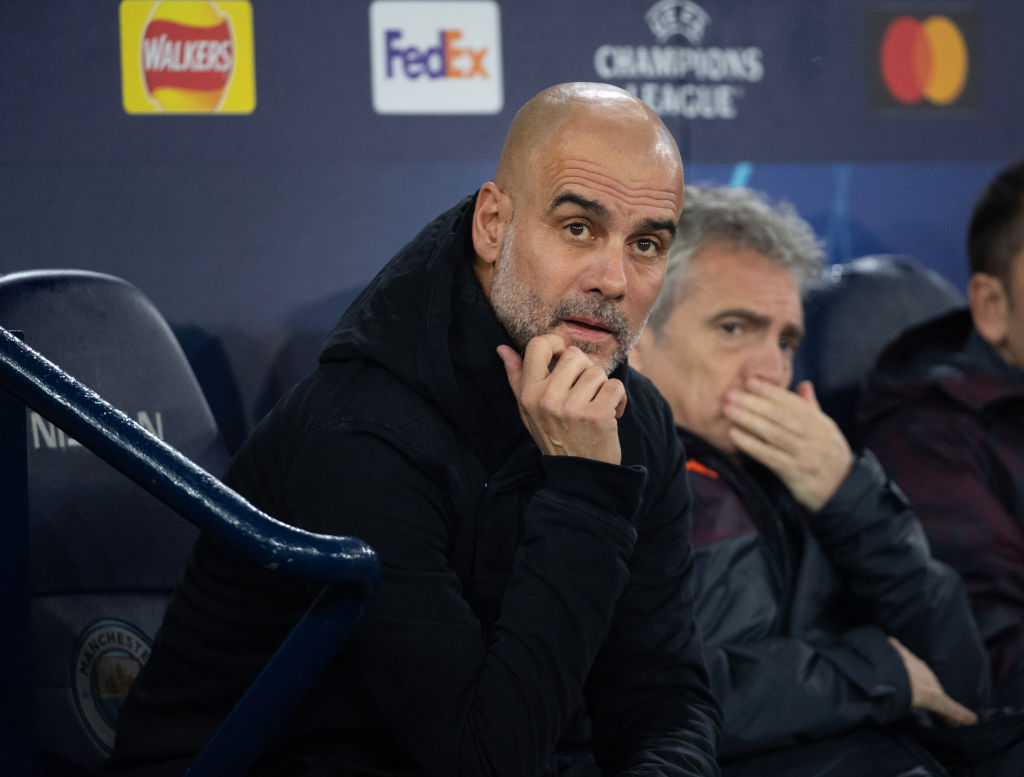
’s hint this week that he might be interested in extending his contract at beyond 2025 should have interested Rob Key.
But it is not because the managing director of England men’s cricket ought now to be taking steps to see if the most successful currently active manager in men’s club football might be persuaded to cross codes. Or, at least, not primarily because of that.
Guardiola is an intriguing study for anyone fascinated by sustained success in elite-level sports teams for many reasons. But with England already on to their white-ball tour of the [starting this Sunday live on , presented by me, with Sir Alastair Cook, Carlos Brathwaite, Steven Finn and Ottis Gibson] hoping to banish the World Cup in India from their minds, his example is instructive.
Four years ago Eoin Morgan’s England were world champions after arguably the greatest final you or I have ever seen. That ‘barest of margins’ win changed many people’s perceptions of what the game of cricket could be. It had the breathless, narrative-heavy quality of a Slow Horses finale, especially since Kane Williamson’s worthy, decent, undefeated New Zealand were the ones who left with nothing. Being the bad guys was fun.
England’s T20 side went on to claim the World Cup last year in Australia, with Jos Buttler installed as captain. Then we had the Ashes, a raw tussle of a series. And now… this. England returning from India with three wins and what felt like a thousand humblings. Key obsessing – too late – about the mid-afternoon heat in India like an Englishman, but ultimately keeping confidence in coach Matthew Mott and captain Buttler.

There are many reasons the defending champions looked so plaintive over the last few weeks, lots of which are format and cricket-specific, but what they have fallen foul of is a trend – and this is where Pep comes in. Football fans know the curse of the World Cup-winning side.
Look at Spain in 2014 or Germany in 2018. Or Italy in 2010, France back in 2002. You win, then next cycle you exit. With great success comes new challenges. Some are psychological but in established footballing nations like Germany that’s far from the whole story. You can’t just celebrate for three years and anyway many of your players have achieved great things at club level or won the Euros in the meantime.
One challenge is in the curse of victory: this has worked this time but now other sides know you, you cannot just stick. The players who have won with you will be older at the next World Cup. Eleven of England’s 15-man squad were aged 30-plus. But much else has changed too. Expectations, for one.
It is ruthless to dispatch tournament winners. The tendency is to burrow down with those who have made you great. What Guardiola understands is that winning must be done differently every time. After claiming every trophy he could in his first post-playing job, he left Barcelona for a sabbatical in NYC.
There’s a charming story told by Simon Kuper about how Pep volunteered to referee at a kids’ indoor tournament. So compulsively did he want to advise the kids on tactics that he was sacked by half-time. He also popped into classes at Columbia University.
When he then joined Bayern Munich he motivated an already treble-winning side to greater heights. And now he’s at Manchester City. Everyone believed his three-year contract of 2016 would be his last with the club. But here he is in 2023, finally having brought the Champions League to that side of Manchester and speculating about staying on.
The world-No.1 England Test team of 2011 had 12 years previously been the world’s worst Test-playing nation. A year later they were also-rans again. Both times they learned from it.
The boom often feels worth the bust. But true greatness lies in improving, improving and improving again.

























